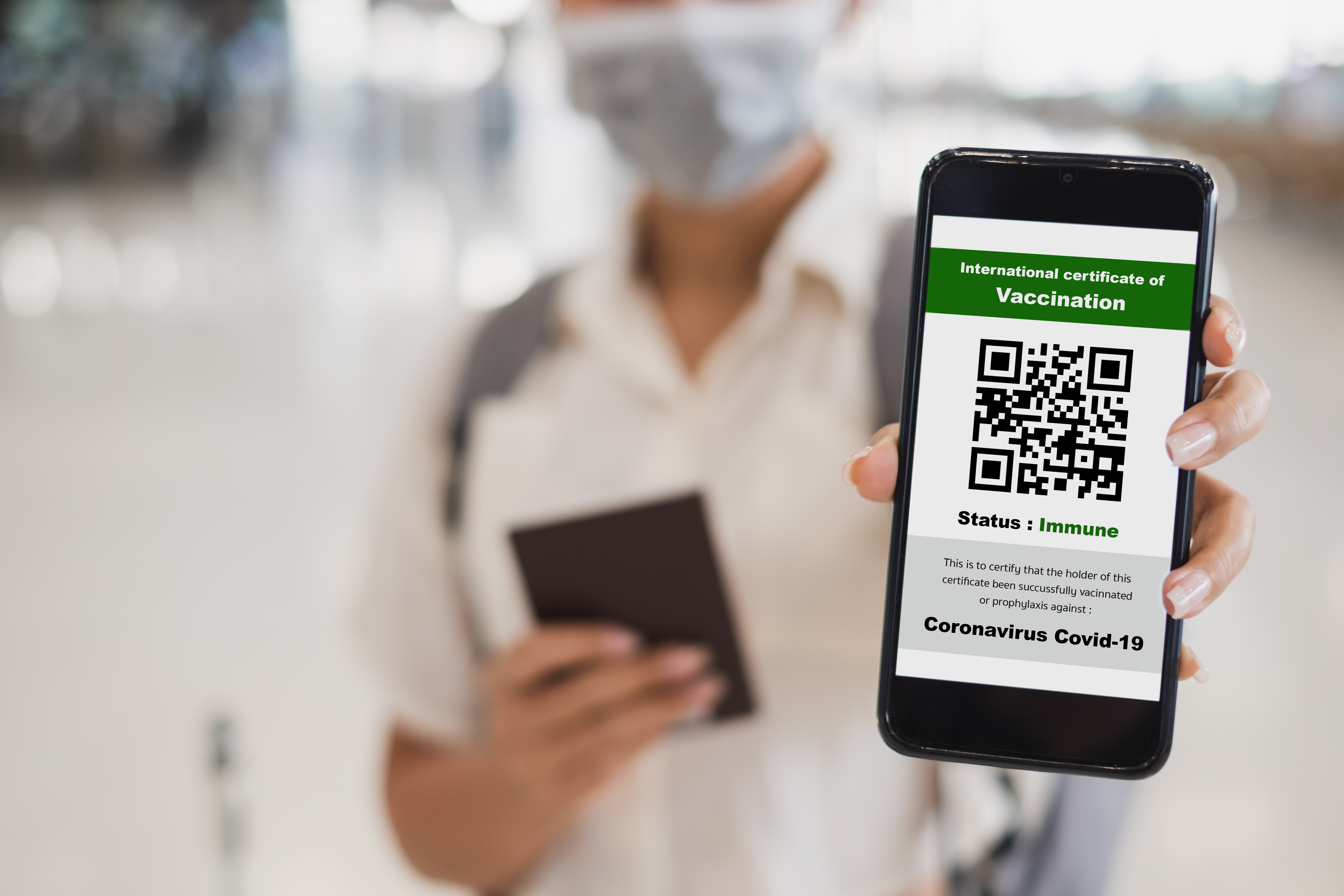How To Get A European Passport
This article is reviewed regularly (on a monthly basis) by Wego's editorial team to ensure that the content is up to date & accurate.
Updated 4 June 2021
Since the start of the pandemic, the European Union and its Member States have been working in tandem to continue cross-border movement in the continent, without it posing a risk to public health.
Now that the vaccination programs are well underway and more and more Europeans are getting inoculated against the virus by the minute, international travel in Europe may get the much-required boost. Hopes are now being pinned on EU's vaccine passports to do just that.

COVID vaccine passport explained
Not to be mistaken with 'immunity passport, the so-called COVID passport is a means of verifying an individual's COVID credentials which include their vaccination status, latest test result, and COVID recovery status for those who had contracted the virus. Vaccine passport, meanwhile, may be limited to showing only COVID vaccination status.
The vaccine passport works by producing a scannable QR code pertaining to your COVID credentials such as vaccination status, latest test result, and COVID recovery status for those who had contracted the virus. Upon scanning, said digital credentials will allow you to gain admittance into numerous venues previously off-limits due to the pandemic.
In the context of international travel, said vaccine passport would allow travellers to gain entry to countries requiring international arrivals to have been fully vaccinated. As of late, there are numerous countries opening their borders to vaccinated travellers.
COVID vaccine passport in Europe
EU Digital COVID Certificate
The EU has approved the deployment of the EU Digital COVID Certificate (previously called the Digital Green Certificate) which would facilitate the safe and free movement of citizens within the EU and eventually allow non-European travellers to safely visit the bloc and the continent.

© trbusiness.com
The EU Digital COVID Certificate will be valid in all EU Member States and open for Iceland, Liechtenstein, Norway as well as Switzerland. It will be issued to EU citizens and their family members, regardless of their nationality, as well as non-EU nationals who reside in the EU and to visitors who have the right to travel to the other Member States.
As of now, seven member states of the EU have decided to connect to the gateway and started issuing the first EU certificates. These countries are
- Bulgaria
- Czechia
- Denmark
- Germany
- Greece
- Croatia
- Poland
Other countries have opted to wait until certain and functions have been deployed nationwide. Expect more EU countries to start issuing the COVID certificates in the coming days and weeks. For those interested, an updated overview is available on a dedicated webpage.
As for which vaccines are accepted, the EU has confirmed that it will accept Pfizer, Moderna, Johnson & Johnson, AstraZeneca and Sinopharm vaccines.
IATA Travel Pass and CommonPass
The most prevalent type of the proposed COVID passports that's been gaining ground has been in the form of a mobile phone application. Organizations such as IATA (International Air Transport Association) and WEE (World Economic Forum) are developing apps such as the Travel Pass and the CommonPass App to allow passengers to safely navigate international travel.
The flag carriers of some member states, AirBaltic, AirSerbia, Iberia, and Swiss are involved in trialing the IATA Travel Pass app.
The CommonPass app is also likely to be launched in Europe and will be accepted at most airports.
Local vaccine passports
A few member states have also been working away at their own vaccine passports.
Iceland was the first country in the EU to start issuing vaccine certificates to those citizens who have received both doses of any approved vaccine. It also launched 'heilsuvera.is' website so that people can obtain a vaccination certificate online.
Denmark plans to use its "Coronapas" vaccine passport from Easter. As of now, it's for domestic use only. but later, its scope may be extended to international travel as well.
Hungary has recently started issuing immunity cards to vaccinated or have recovered individuals so that they can enter restrictions-free and may enjoy the liberty to stay out past the national curfew of 8 PM.
Estonia and Poland, too, will come up with their own digital certificates in the form of a QR code, showing proof of vaccination.
Apart from these, Cyprus, Czechia, France, Greece, Hungary, Italy, Portugal, Slovakia, Spain and Sweden, too, are in the process of designing their own passports.

Image for illustration purpose only
Vaccine passport potential benefits
As more and more countries are opening up their borders for vaccinated travellers, vaccine passports are increasingly viewed as the logical next step to reinstate cross-border travels.
For Europe, the hope is that vaccine passports will be able to streamline the verification process at the airport or border. The app will allow passengers to verify, store and share with the authorities all test and vaccination certificates.
As a result, passengers will be able to prove themselves 'safe' and travel seamlessly without any restrictions. Countries will be able to lax their regulations and testing requirements and welcome international passengers with open arms once again.
Going forward, it would also be theoretically possible to fully reopen schools and offices by utilizing the COVID passport. Restaurants, hotels, beaches, gardens, theme parks, tourist attractions, and all other public places may be allowed to work to full capacity for vaccinated individuals.
The apps will obsolesce the need to carry physical documents and grant credibility to the online certification.
To tackle the risk of discrimination against those who cannot get vaccinated on medical or financial grounds, the Commission proposes to incorporate the COVID-19 test certificates and certificates for persons who have recovered from COVID-19.
Vaccine passport potential risks
First and foremost, it hasn't been indubitably proven that vaccinated individuals can't carry and transmit the virus to others. This means that even if vaccinated passengers don't get sick themselves, it is still probable that they can pass on the infection to someone else, putting the locals of the destination country at risk.
The concept is questionable from the legal perspective as well. It encroaches on data privacy and inevitably gives rise to the possibility of personal information falling in the wrong hands.
When will the EU fully implement the vaccine passport?
As of the most recent update, the Commissioner for Internal Market Thierry Breton said that the timely preparation will allow the full system to be up and running by 1 July – when the proposal enters into the application and the EU will be on time to open up again this summer.
Didier Reynders, Commissioner for Justice also said that the EU Digital COVID certificate "showcases Europe's technological leadership in full respect of our values and principles: data protection, inclusiveness, and proportionality. It is important that all Member States use the next weeks to get fully ready, so the system will be fully up and running on 1 July."

How To Get A European Passport
Source: https://blog.wego.com/vaccine-passport-eu/
Posted by: wesleyhiscired.blogspot.com

0 Response to "How To Get A European Passport"
Post a Comment